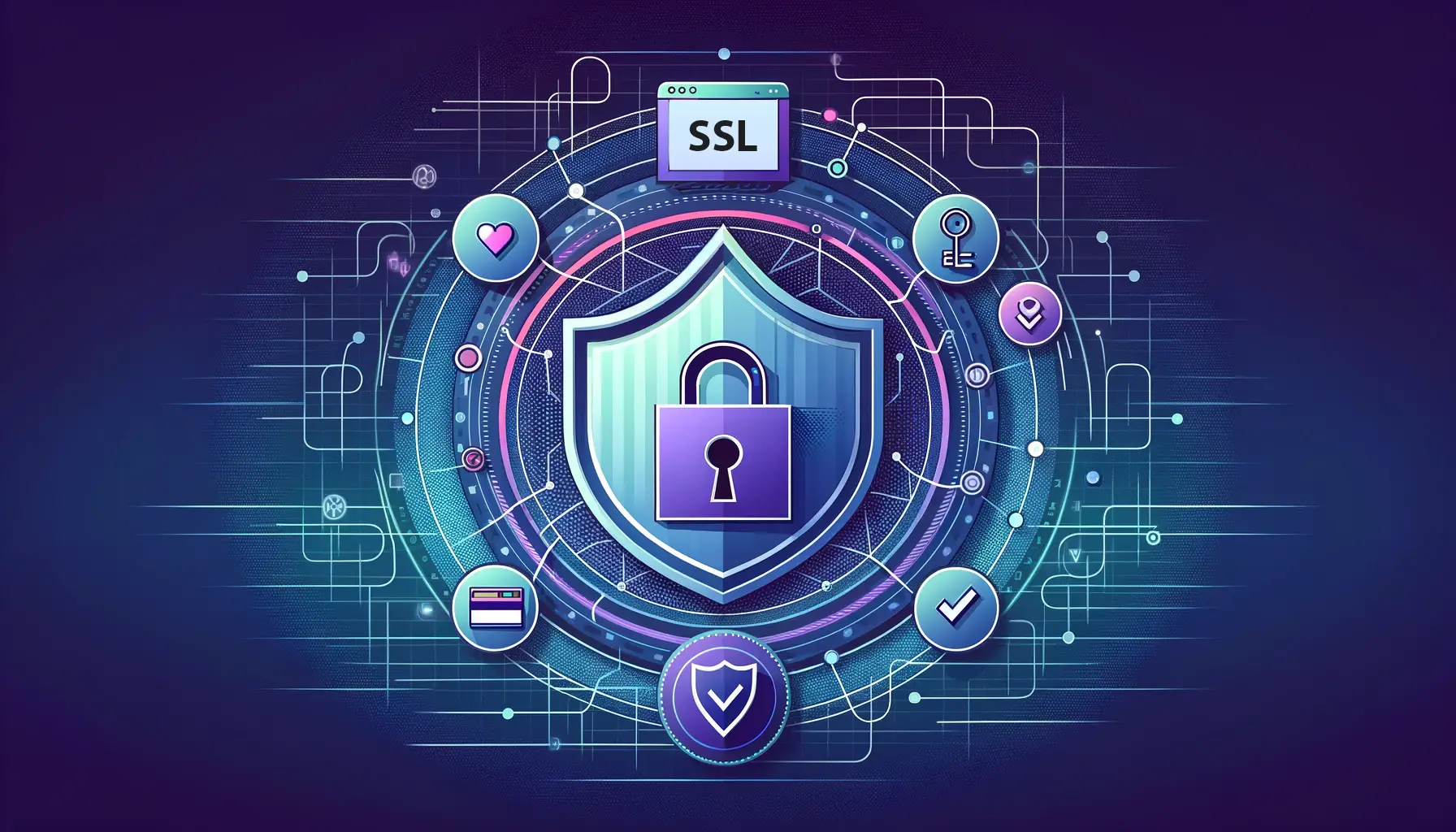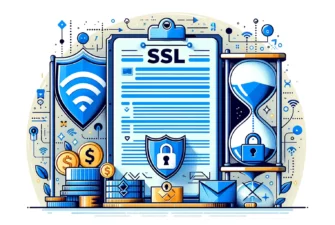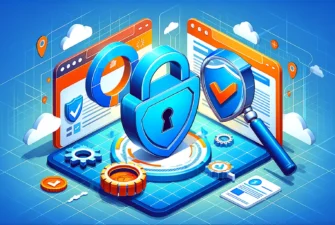
Imagine, if you will, juggling dozens of balls all at once – that’s what it feels like you’re doing when managing separate SSL certificates for multiple domains. It’s a daunting and time-consuming task, not to mention the steep price involved. Thankfully, there’s an easy and affordable solution: multi-domain SSL Certificates.
But what is a multi-domain certificate? This article provides the answer. In just a few minutes, you’ll learn how multi-domain certs work, what benefits they bring, and how to get the most popular options for your project. Let’s get started!
Table of Contents
- What Is a Multi-Domain SSL Certificate?
- Benefits of Multi-Domain SSL Certificates
- Most Popular Multi-Domain SSL Certificates
- How to Get a Multi-Domain SSL Certificate?
What Is a Multi-Domain SSL Certificate?
A Multi-Domain SSL Certificate allows you to secure multiple domain names (websites) with a single certificate. SSL certificates establish a secure and encrypted connection between a user’s web browser and the server hosting a website, ensuring that sensitive information like login credentials, credit card details, and other personal data is transmitted securely.
How Does a Multi-Domain SSL Certificate Work?
The multi-domain SSL certificate simplifies the management and cost of certificate administration by securing all your different domain names, subdomains, or IP addresses under just one SSL certificate. It uses Subject Alternative Names (SANs) to secure up to 250 SANs.
I imagine you have several websites (e.g., www.yourdomain1.com, www.yourdomain2.com, and www.yourdomain3.com), and you want to make sure that each of them is protected with the padlock symbol in the browser’s address bar to indicate a secure connection.
Instead of getting separate SSL certificates for each fully qualified domain name, a Multi-Domain SSL Certificate allows you to cover them all. But there’s more. Here are some examples of combinations that a Multi-Domain certificate can secure:
- Multiple Domains:
- yourdomain.com
- yourdomain.net
- yourdomain.org
- Subdomains of a Single Domain:
- blog.yourdomain.com
- news.yourdomain.com
- shop.yourdomani.com
- Combination of Domains and Subdomains:
- yourdomain.com
- news.yourdomain.com
- blog.yourdomain.com
Multi-Domain vs SAN vs UCC Certificates
A Subject Alternative Name (SAN) is an extension to the X.509 specification that allows additional identity information to be associated with an SSL certificate. The SAN certificate provides a way to specify multiple host names to be protected by a single certificate. That’s exactly what a multi-domain SSL certificate does.
For example, if you have two websites with the domains www.example.com and www.example2.com, you can include both names in the SAN field of the SSL certificate.
UCC (Unified Communications Certificate) is a name for multi-domain certificates designed to support and secure multiple communication services in Microsoft environments. These services may include Microsoft Exchange Servers, Microsoft Office Communications Server (now part of Skype for Business), and other Unified Communications (UC) applications.
When looking for multi-domain certificates, you’ll encounter both SAN and UCC acronyms as part of the certificate’s name. It’s a common practice for Certificate Authorities (CAs) to brand their multi-domain products this way. But in reality, all multi-domain options on the market are SAN and UCC certificates, and these terms are interchangeable.
What Is a Multi-Domain Wildcard Certificate?
A Multi-Domain Wildcard SSL certificate protects multiple domains and their corresponding subdomains under one SSL installation. This flexible solution seamlessly integrates the attributes of multi-domain and wildcard SSL certificates, ensuring robust security for intricate websites.
Multi-domain wildcard certs can be a top-level domain and multiple Wildcard domains (with both first-level and second-level subdomains). Check our guide on how to secure multi-level subdomains.
For example:
- youdomain.com (specified in your CSR)
- *.yourdomain.com
- *.blog.yourdomain.com
Read our multi-domain vs. wildcard certificates comparison for more information and configuration steps.
Benefits of Multi-Domain SSL Certificates
You’ll find a multitude of advantages when using Multi-Domain SSL Certificates. They provide smooth SSL management, impressive value for money, and complete browser compatibility. Moreover, they offer unbreakable encryption and additional features for enhanced trust.
- Smooth SSL management. With the help of multi-domain SSL certificates, you can streamline and simplify your SSL management process, effectively reducing time spent on manual operations and strengthening your website’s security.
Furthermore, multi-domain SSL certificates provide a more efficient renewal process. With a one-time renewal, you ensure uninterrupted security for all your domains. - Great value for money. Instead of purchasing individual certificates for each domain or subdomain, you’re essentially bundling them under one umbrella, which can significantly reduce costs.
It’s a cost-effective solution for businesses managing multiple websites or platforms. Not only does it save you money, but it also reduces the time and effort spent on certificate management. - Full browser compatibility. This feature is crucial as it can significantly reduce the chances of your site being flagged as insecure, potentially driving away your visitors. Your site will function across all platforms, including Chrome, Firefox, Safari, Edge, and legacy browsers.
- Unbreakable encryption. Multi-domain SSL certificates offer unbreakable encryption, ensuring your website’s data is safe. You can securely send sensitive information across networks, reducing the risk of data breaches.
The multi-domain SSL certificate’s encryption mechanism leverages the most advanced cryptographic algorithms, converting the data into unintelligible text that only authorized parties can decrypt. - Extra features for enhanced trust. Not only does a multi-domain SSL certificate provide top-tier encryption, but it also comes with features that enhance user trust in your website. One such feature is Extended Validation. This process involves a rigorous check on your business by the certificate authority.
Furthermore, all multi-domain SSL certificates include generous warranties against potential data loss and offer free site seals to boost customers’ trust.
Most Popular Multi-Domain SSL Certificates
With many SSL providers offering multi-domain certificates, picking the perfect one for your websites may be tricky. The SSL Wizard can recommend the best option based on your needs and budget. Here are our top choices:
- Comodo PositiveSSL Multi-Domain Certificate. It’s affordable and secures up to 250 domains. 99.9% of web browsers have this Domain Validation cert, making it a reliable choice for blogs, personal sites, and small businesses.
- DigiCert Secure Site EV SSL Certificate. It offers high assurance and comprehensive validation for large organizations, enterprises, and financial institutions.
- GeoTrust True BusinessID Multi-Domain. Besides securing multiple domains, it includes a dynamic site seal that boosts customer trust.
- Sectigo Multi-Domain Wildcard SSL is the preferred choice for securing multiple domains and subdomains under one certificate. It offers organization validation for business and e-commerce platforms of all sizes.
Each of these options has unique features that cater to different needs. Assess your requirements before making a choice and enjoy flawless sensitive data protection.
How to Get a Multi-Domain SSL Certificate?
All you have to do is select and buy the desired multi-domain SSL certificate. As part of CA requirements, you must generate a Certificate Signing Request (CSR) and submit it to the CA for validation.
The Domain Control Validation involves email verification, DNS TXT record, or HTTP/HTTPS validation.
After the CA verifies your details, it will issue the certificate via email. Download the archived folder and extract its contents on your device.
You’ll then need to install this certificate on your server. The installation process varies depending on your server’s type and hosting provider.
Bottom Line
Now that we’ve answered the “What are multi-domain certificates” question, it’s your turn to consider them when securing multiple websites at once.
Multi-domain certificates not only simplify your security management but also save you money. Remember, getting a multi-domain SSL cert is a straightforward process. So, why wait? Enhance your website’s credibility and protect your user’s information today.
Save 10% on SSL Certificates when ordering today!
Fast issuance, strong encryption, 99.99% browser trust, dedicated support, and 25-day money-back guarantee. Coupon code: SAVE10



























